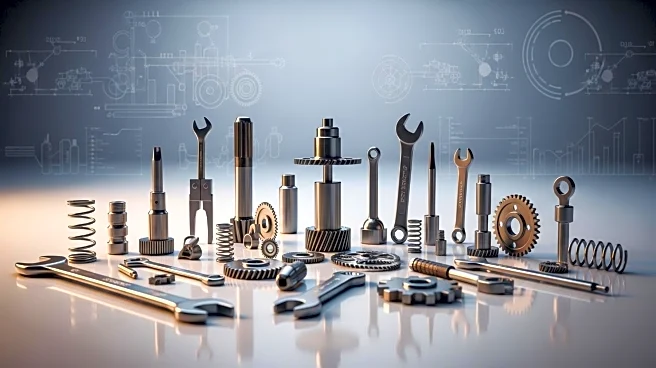What's Happening?
SEMA and PRI CEO Mike Spagnola has emphasized the importance of developing the next generation of talent and implementing pro-growth policies to ensure the long-term health of U.S. manufacturers. SEMA is investing in career pathways that connect students to opportunities in the automotive industry, offering scholarships and hosting career fairs. These efforts aim to expose students to various career options within the industry, including engineering, finance, marketing, and customer service. Additionally, SEMA is advocating for federal tax and manufacturing policies that support competitiveness, such as the 'One Big Beautiful Bill,' which includes permanent tax deductions and incentives for manufacturers. These measures are particularly crucial for smaller firms, allowing them to thrive and contribute to the U.S. economy.
Why It's Important?
The initiatives led by SEMA are significant as they address the critical need for skilled labor in the automotive industry, which is essential for maintaining the competitiveness of U.S. manufacturers. By investing in education and career development, SEMA is helping to ensure a steady pipeline of talent that can drive innovation and growth in the sector. The pro-growth policies advocated by SEMA, such as tax rate certainty and the 199A deduction, provide financial stability and incentives for small businesses, which are vital for economic expansion. These efforts not only support existing manufacturers but also encourage new investments in U.S. production, potentially leading to increased job creation and economic prosperity.
What's Next?
SEMA's focus on workforce development and policy advocacy is expected to continue, with further investments in educational programs and lobbying for favorable legislation. The impact of these initiatives may lead to increased interest in automotive careers among students and greater support for U.S. manufacturing. As the industry adapts to changes such as the shift towards electric vehicles, SEMA's efforts to promote technical education and pro-growth policies will be crucial in ensuring that manufacturers can meet evolving demands and maintain their competitive edge.
Beyond the Headlines
SEMA's initiatives highlight the broader cultural shift towards valuing technical education and skilled trades, which are often overlooked in favor of traditional academic paths. By promoting careers in the automotive industry, SEMA is contributing to a reevaluation of the importance of vocational training and its role in economic development. Additionally, the emphasis on 'made-in-America' products reflects a growing trend towards domestic manufacturing, which could have long-term implications for trade policies and global supply chains.









